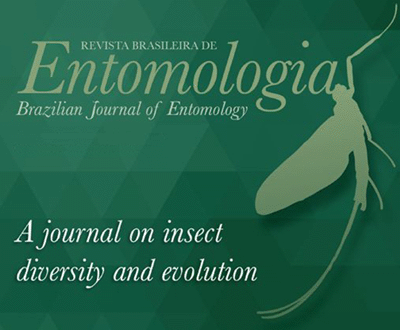Loranthaceae are hemiparasite plants with worldwide distribuition, represented in Brazil by six genera. The most important are Phthirusa, Psittacanthus and Struthanthus that parasitize a great diversity of host plants. This paper evaluated the occurrence and the seasonal fluctuation of flies infesting the fruits of Psittacanthus plagiophyllus in the municipalities of Anastácio, Aquidauana and Miranda, Mato Grosso do Sul, Brazil, where mistletoes are widespread. The samples were taken from June 1998 to July 2000 to obtain the hosts and its associated insects. All insects were reared until adult stage, and it were obtained 1,522 adults of Neosilba spp., of which 612 males were identified at species level: Neosilba bifida Strikis & Prado (6 specimens), N. certa (Walker) (26 specimens), N. pendula (Bezzi) (16 specimens), N. zadolicha McAlpine & Steyskal (4 specimens) and two different species, morphotype MSP1 (478 specimens) and morphotype 4 (82 specimens). The period of highest infestation by Neosilba spp. occurred during August 1998 and 1999, and morphotype MSP1 was significantly more abundant than all other species. The species morphotype 4 was the second most abundant, differing significantly from Neosilba zadolicha. Neosilba was the only genus of frugivorous fly infesting fruits of P. plagiophyllus and behaves as primary invader in this host.
Cerrado; hosts; fruit fly infestation; mistletoes



